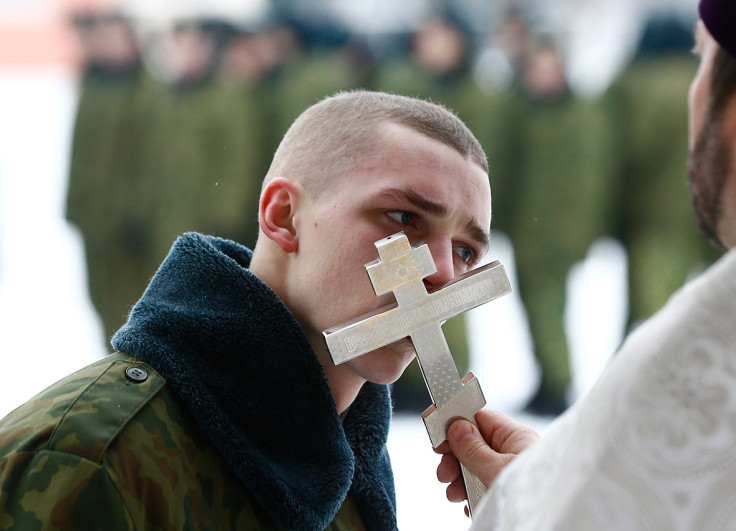Russian atheist could face jail under post-Pussy Riot anti-blasphemy law

A Russian man has allegedly been booked for posting a message online in which he denies the existence of God. Viktor Krasnov from Stavropol was arrested under Russia's anti-blasphemy law which came into effect after punk-rock group Pussy Riot's performance at a Moscow cathedral in 2013 during which they stoked a controversy by calling on the Virgin Mary to "drive (Vladimir) Putin away".
Krasnov is being charged for a statement he made in an online discussion on a humorous website back in 2014 saying: "If I say that the collection of Jewish fairytales entitled the Bible is complete bulls***, that is that. At least for me, there is no God!"
An individual involved in the discussion later reported him for "offending the sentiments of Orthodox believers".
Prior to his hearing on 2 March, Krasnov, 38, was made to spend one month in a psychiatric facility where he was examined before being deemed sane.
His lawyer Andrei Sabinin told AFP that his client was "simply an atheist" who was not targeting Orthodox Christians but had also spoken about "Halloween and Yiddish holidays".
Speaking with Svoboda, Radio Free Europe's Russian Service, Krasnov said: "I did not intend to insult anyone, speaking my mind not in a church or any sort of religious community, but in an amusing community, where religious questions are never discussed."
He went on to explain that his remarks were made after two others involved in the discussion, Dmitry Burnyashev and Alexander Kravtsov, suggested that women were inferior to men.
The 38-year-old has allegedly been receiving threats from Orthodox Christians and people visited his mother's office demanding her dismissal.
If convicted, Krasnov faces up to a year in prison or a fine of 300,000 roubles ($4,065/£2,871).
Amnesty International has criticised Article 148 that criminalises acts that insult people's religious sentiments and said it showed "the shrinking space for freedom of expression in Russia", and had "no place on the statute books of modern, rights-respecting democracy".
© Copyright IBTimes 2025. All rights reserved.






















